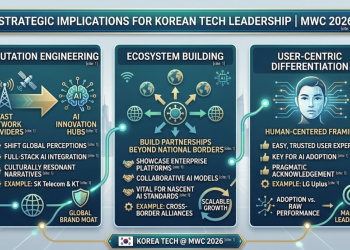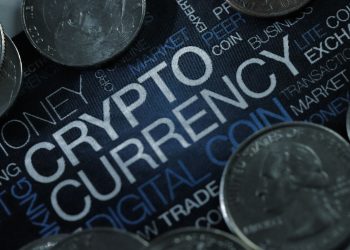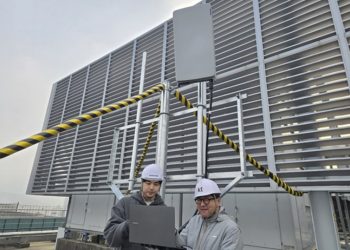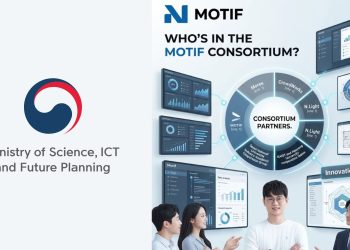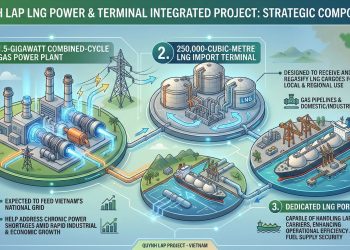The semiconductor industry holds paramount importance for South Korea for its technological prowess and economic vitality in the world. With key players like Samsung Electronics and SK Hynix South Korea commands a major share of the global semiconductor market, contributing approximately 60% of the world’s memory chip supply.
In 2023, the semiconductor sector witnessed a surge in activity and strategic collaborations. OpenAI CEO Sam Altman’s recent visit to South Korea showed the growing interest and investment in semiconductor ventures, as the industry grapples with surging demand driven by advancements in artificial intelligence (AI) applications.
Similarly, South Korean President Yoon Suk Yeol recently announced his commitment to extending tax incentives for investments in the local semiconductor sector. The Ministry of Trade, Industry, and Energy disclosed the vision to build the world’s largest semiconductor cluster in Gyeonggi Province by 2047.
2023 was an important year for semiconductors in South Korea. And hence, this article takes you through the pivotal events and strategic maneuvers that defined South Korea’s chip industry landscape in 2023.
Explore the highlights and milestones of a transformative year, where alliances were forged, investments surged, and the semiconductor industry stood shone in the global tech space.
A Bold Step Towards Global Technological Leadership
The announcement made on March 17, 2023, revealed South Korea’s ambitious plan to construct the world’s largest semiconductor cluster by 2042, in collaboration with Samsung Electronics. By the projected operational date of 2042, the facility was slated to be established in Gyeonggi Province, situated near the capital city of Seoul.
The Ministry of Trade, Industry, and Energy indicated that the Gyeonggi cluster planned to attract over 150 companies engaged in the delivery of raw materials, component manufacturing, and high-tech semiconductor design.
Semiconductor output went up by 5.1 percent:
South Korea’s manufacturing sector experienced a notable resurgence in March 2023, with a 5.1 percent increase in factory output. Statistics Korea’s report highlighted growth across various industries, particularly in semiconductor and automobile production, which saw substantial gains of 35.1 percent and 6.5 percent, respectively. These sectors emerged as key drivers behind the surge in overall factory output during the month.
Additionally, the finance and insurance industry recorded a notable uptick of nearly 1.8 percent in March, signaling broader economic momentum. Similarly, the service industry witnessed a modest increase of 0.2 percent in output, while private spending and retail sales showed positive growth of 0.4 percent. This growth trajectory reflected a renewed demand for commodities such as fuels and electronics, driving an overall improvement in industrial output and private investment, marking the most significant surge since June 2020.
South Korea’s Export Woes: Navigating Challenges in the Global Market:
South Korea’s Ministry of Trade, Industry, and Energy (MOTIE) released data indicating a continued downturn in exports for the eighth consecutive month in May 2023. Semiconductor exports, a key component of South Korea’s export portfolio, experienced a significant year-over-year decline of 36.2 percent during the month, contributing to an overall decrease in export value to $52.24 billion, marking a notable 15.2 percent drop compared to the previous year.
This prolonged decline in exports, the most sustained since December 2018 to January 2020, raised concerns about the country’s economic stability, given that exports comprise approximately 40 percent of South Korea’s GDP. The downward trend in exports, particularly in semiconductor shipments, showed the challenges faced by South Korea in navigating the volatile global market landscape, with implications for the broader economy.
Samsung and SK Hynix Granted Indefinite Waiver for Semiconductor Equipment Exports to China
The indefinite waiver granted to Samsung Electronics and SK Hynix in October 2023 allowed them to continue supplying semiconductor equipment to their factories in China, providing a significant relief amidst escalating trade tensions between the US and China. This waiver, which exempted them from US export controls on chip technology to China, enabled both companies to maintain their operations and pursue technological advancements in the semiconductor sector.
The waiver resolved a precarious situation for Samsung and SK Hynix, who had faced uncertainty due to the expiration of previous licenses and the imposition of export controls. With the waiver in place, both companies could operate their facilities in China without the need for separate US approvals, alleviating concerns within South Korea’s semiconductor industry and allowing for a more stable operational environment.
The President Sought Semiconductor Collaboration in Netherlands Visit:
President Yoon Suk Yeol’s visit to the Netherlands in December 2023 marked a historic milestone as the first by a South Korean leader since diplomatic ties were established in 1961. The primary focus of the visit was to strengthen semiconductor cooperation between South Korea and the Netherlands, with discussions aimed at a “chip alliance” between the two nations. President Yoon highlighted the importance of semiconductor collaboration with the Netherlands, the United States, and Japan, emphasizing South Korea’s intention to significantly enhance partnerships in this critical sector.
The collaborative efforts between South Korea and the Netherlands hold strategic significance, especially in light of the Dutch government’s recent participation in a US-led initiative aimed at limiting China’s access to advanced chipmaking technology. The Netherlands’ hosting of ASML, the exclusive producer of extreme ultraviolet lithography machines crucial for advanced chip manufacturing, further enhances the potential for fruitful collaboration between South Korea and the Netherlands in the semiconductor sector.
Closing notes:

